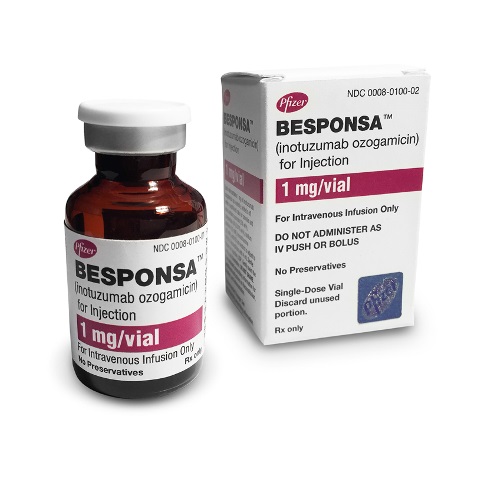The U.S. Food and Drug Administration (FDA) Thursday approved Besponsa (compound: inotuzumab ozogamicin) for the treatment of adults with relapsed or refractory B-cell precursor acute lymphoblastic leukemia.
B-cell precursor acute lymphoblastic leukemia (ALL) is a form of leukemia, in which too many B-cell lymphoblasts (immature white blood cells) are found in the blood and bone marrow. It is the most common type of ALL.
The National Cancer Institute estimates that approximately 5,970 people in the United States will be diagnosed with ALL this year and about 1,440 will die from the disease.
Besponsa is a targeted therapy by binding to B-cell ALL cancer cells that contain the CD22 antigen, blocking the growth of cancer cells.
The FDA granted the approval of Besponsa to Pfizer Inc., and also t

he application of priority review and breakthrough therapy designation. Besponsa also received orphan drug designation, which provides incentives to assist and encourage the development of drugs for rare diseases.
Clinical studies proved the safety and efficacy of Besponsa in a randomized trial of 326 patients with relapsed or refractory B-cell ALL and had already received prior treatments. The trial measured the percentage of patients with no evidence of disease and full recovery of blood counts after treatment.
Of the 218 evaluated patients, 35.8 percent who received Besponsa experienced CR for a median 8.0 months.
Common side effects of Besponsa include low levels of platelets (thrombocytopenia), low levels of certain white blood cells (leukopenia), infection, liver damage, low levels of red blood cells (anemia), fatigue, severe bleeding (hemorrhage), fever, nausea, headache, low levels of white blood cells, and abdominal pain.
The prescribing information for Besponsa includes a warning that severe liver damage (hepatotoxicity), including blockage of veins in the liver (veno-occlusive disease), occurred in some patients who took Besponsa.
Women who are pregnant or breastfeeding should not take Besponsa because it may cause harm to a developing fetus or a newborn baby.
“For adult patients with B-cell ALL whose cancer has not responded to initial treatment or has returned after treatment, life expectancy is typically low,” said Richard Pazdur, director of the FDA’s Oncology Center. “These patients have few treatments available and today’s approval provides a new, targeted treatment option.”

